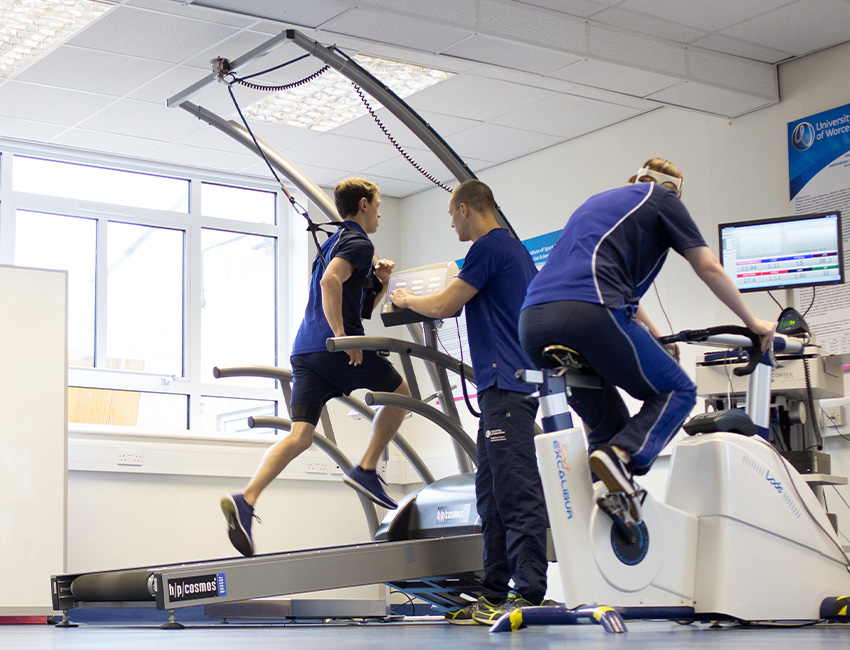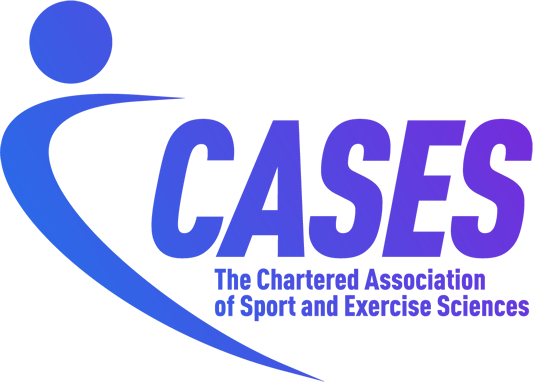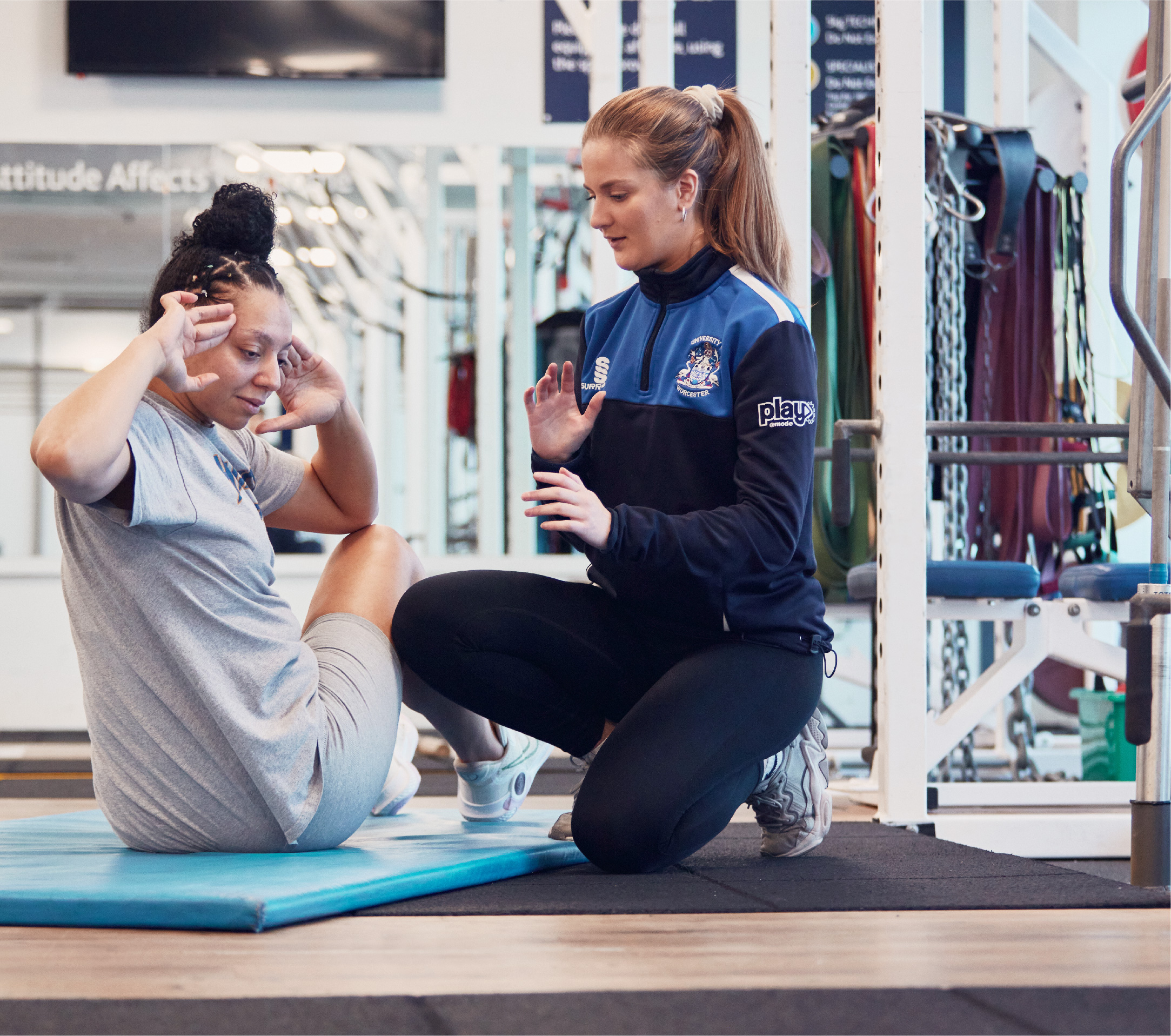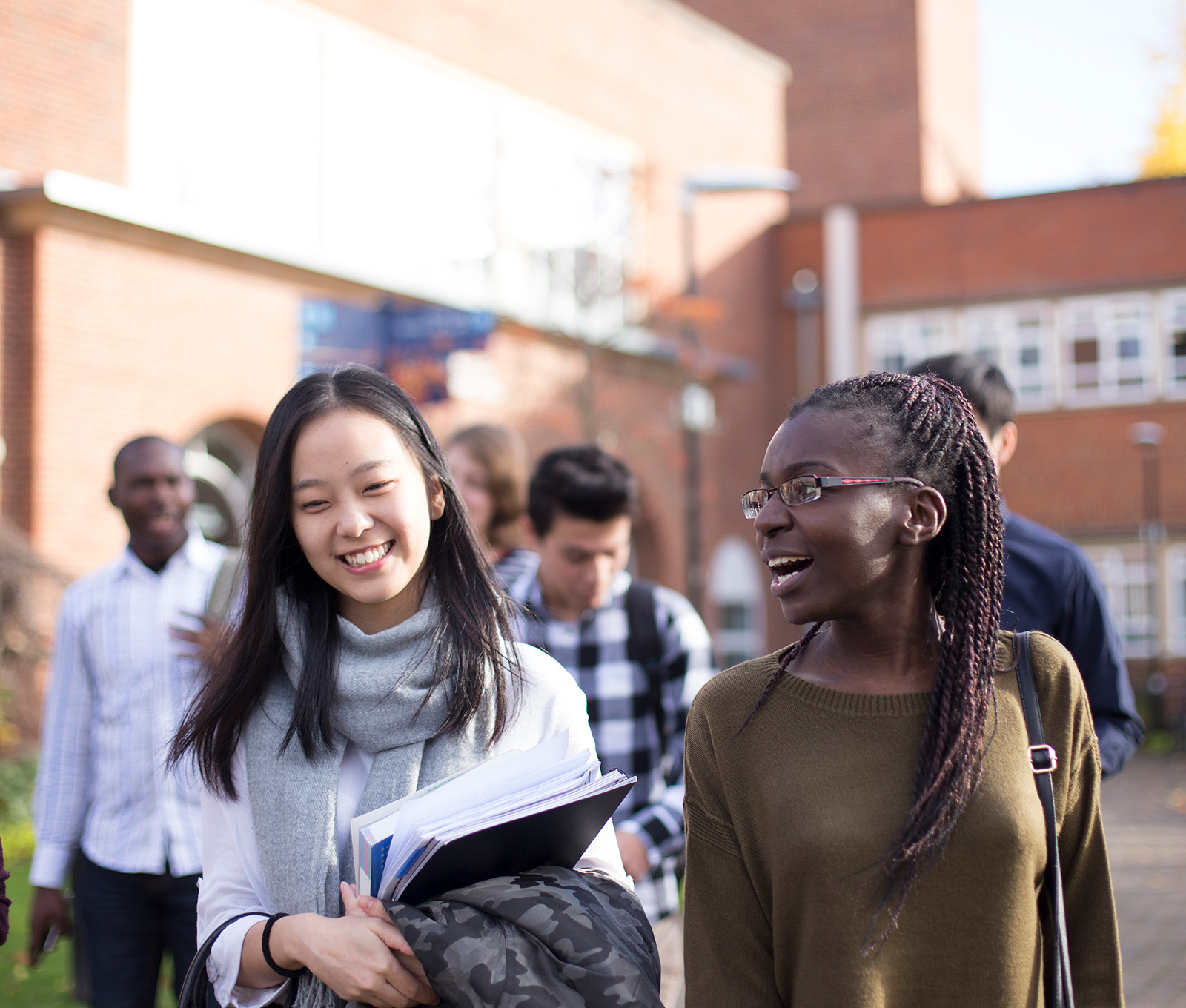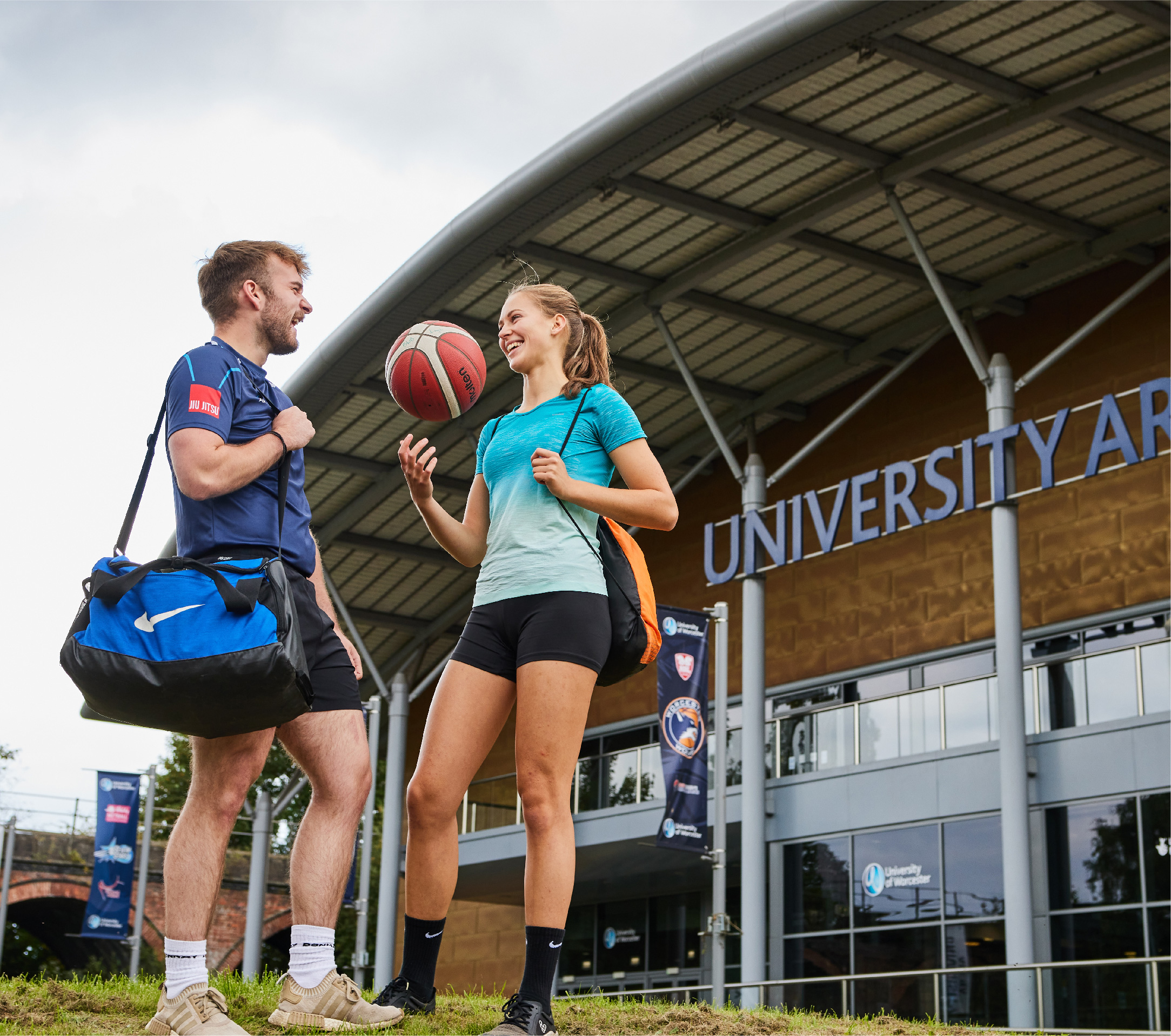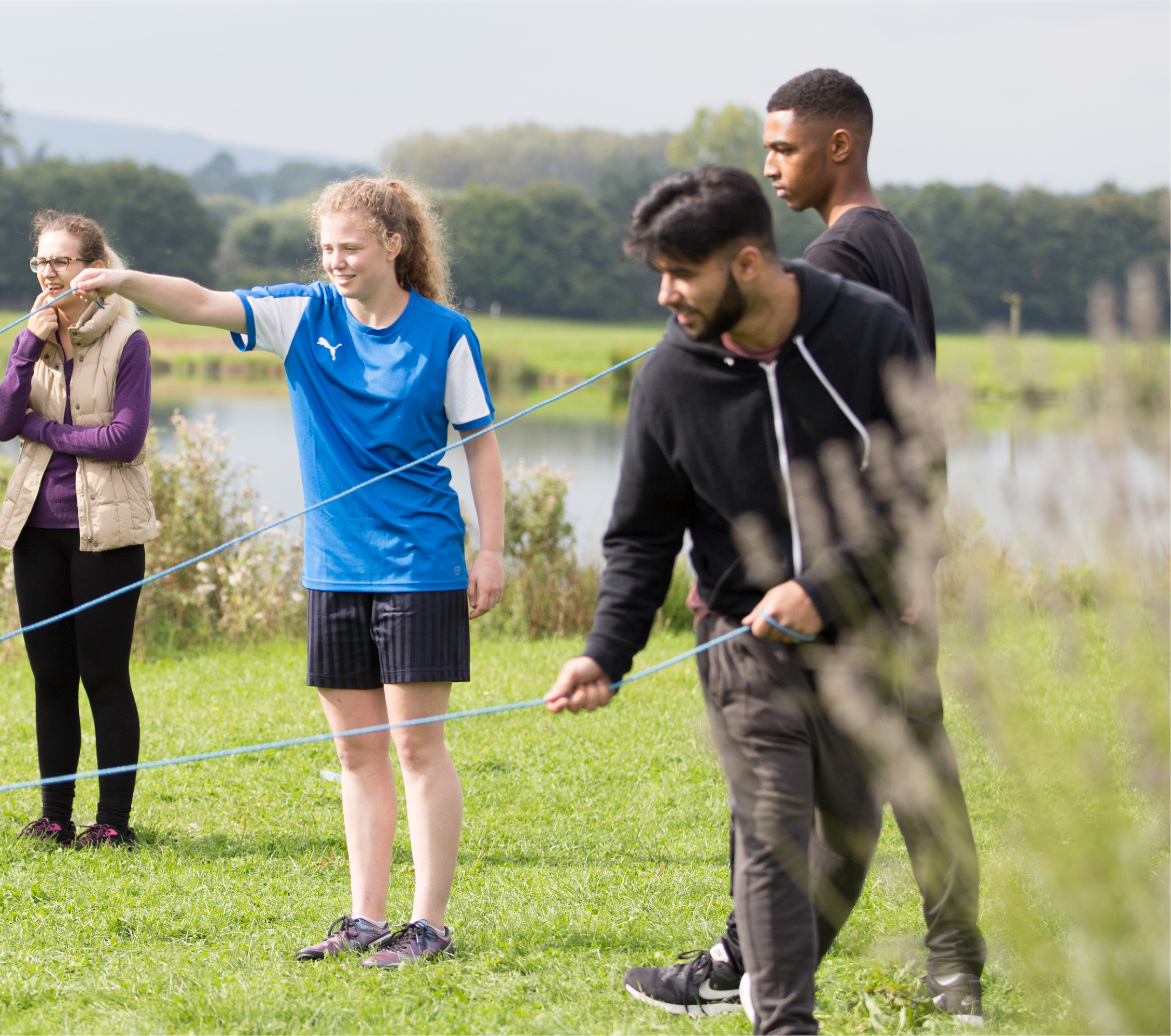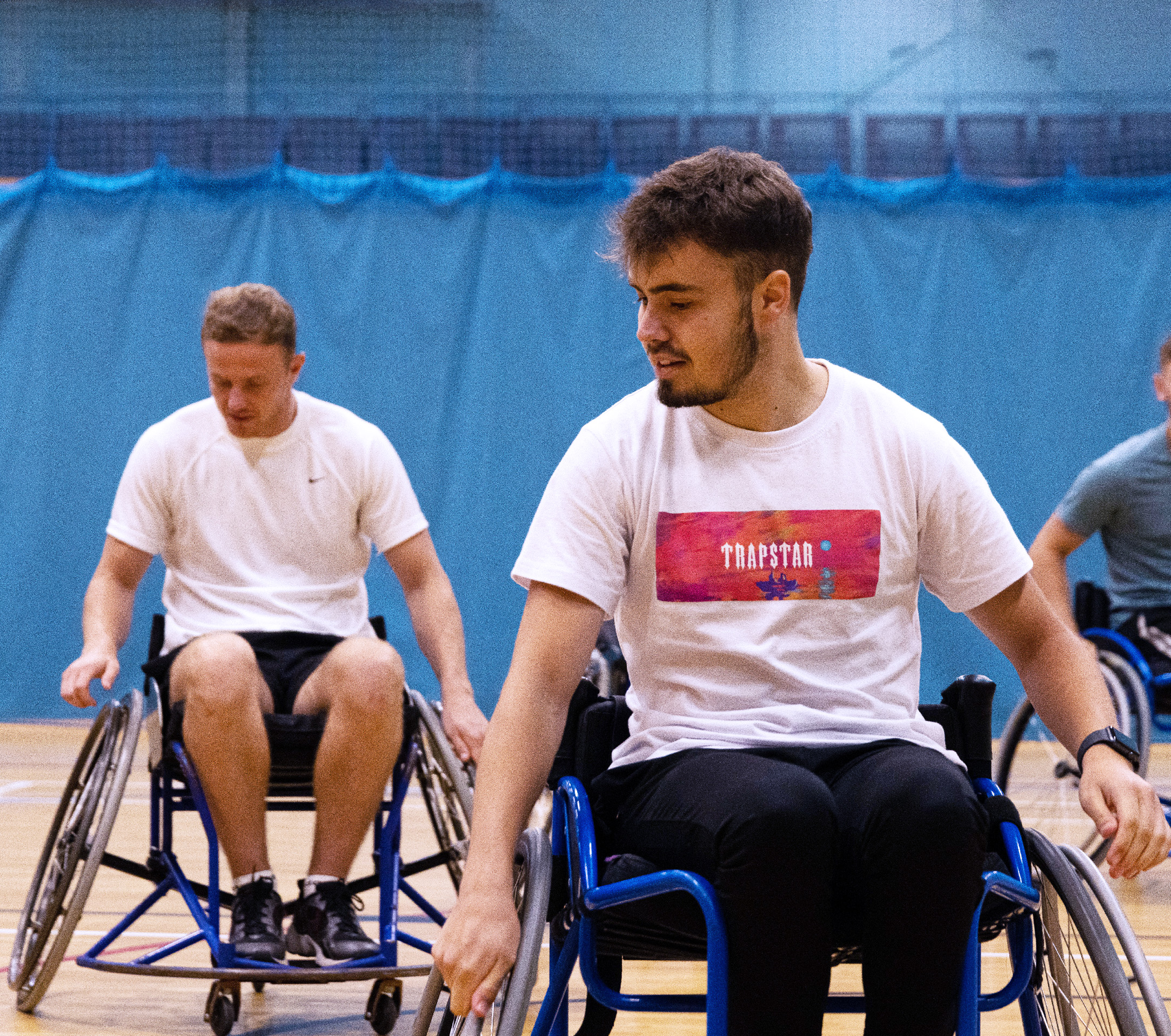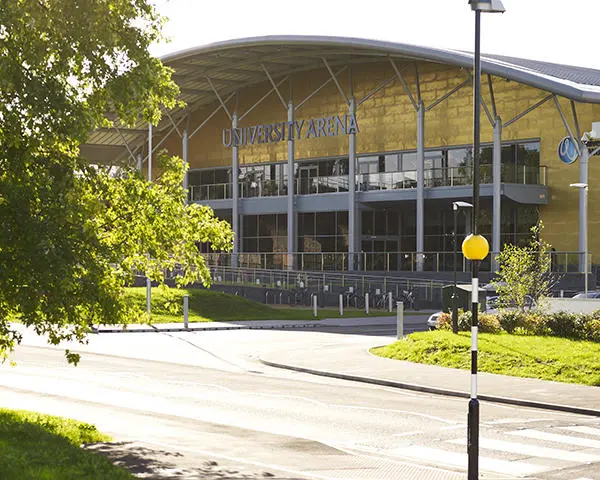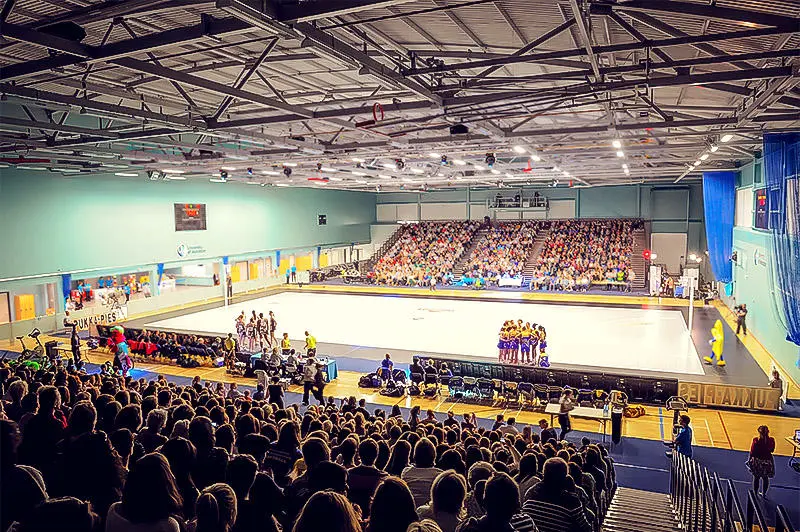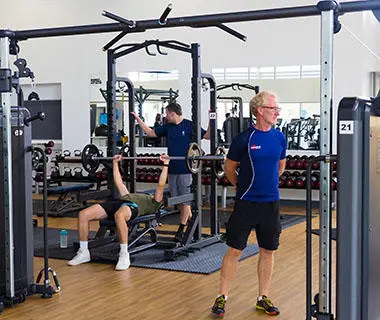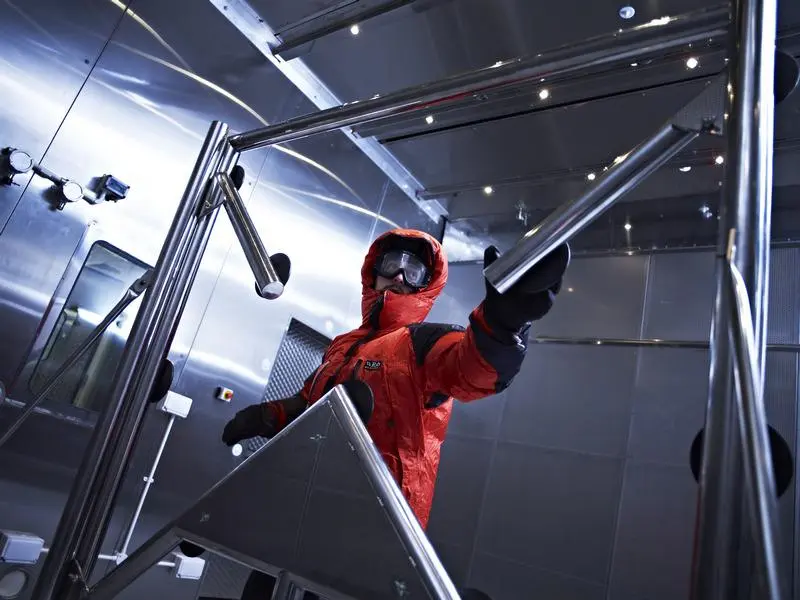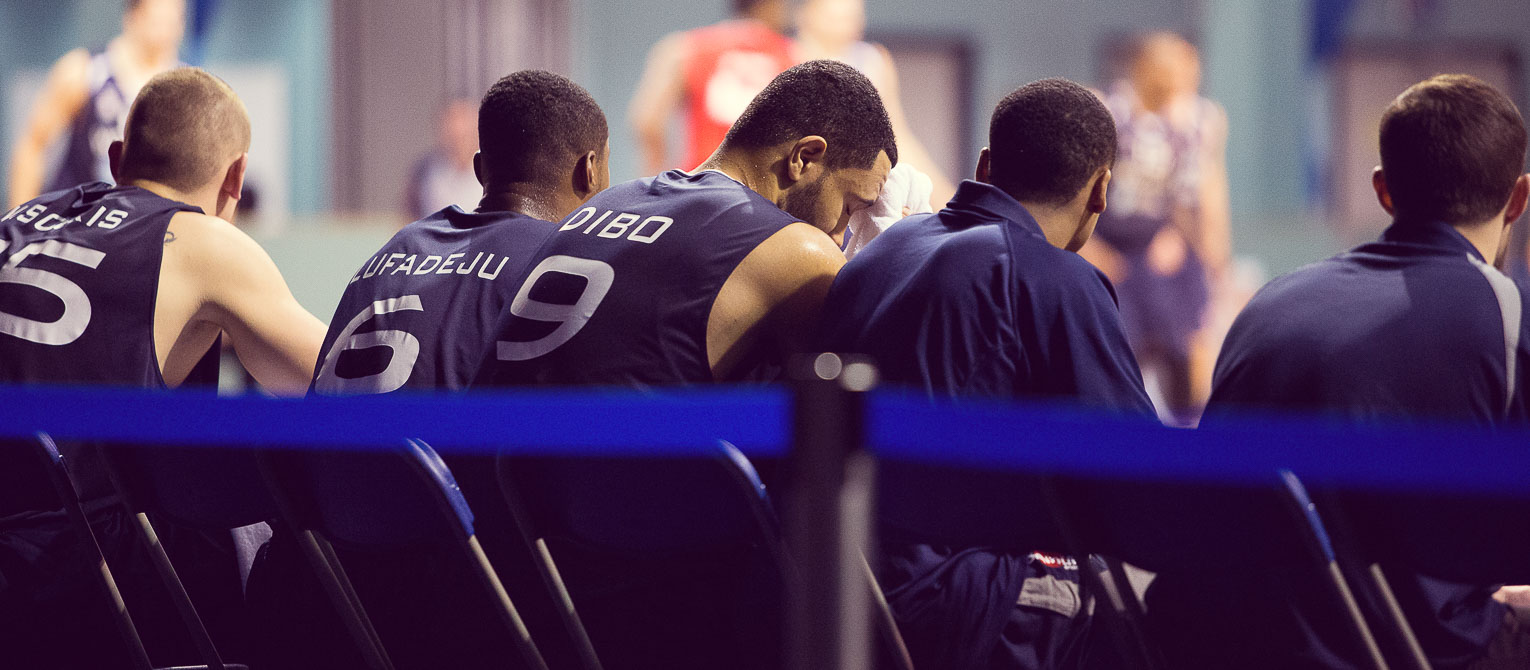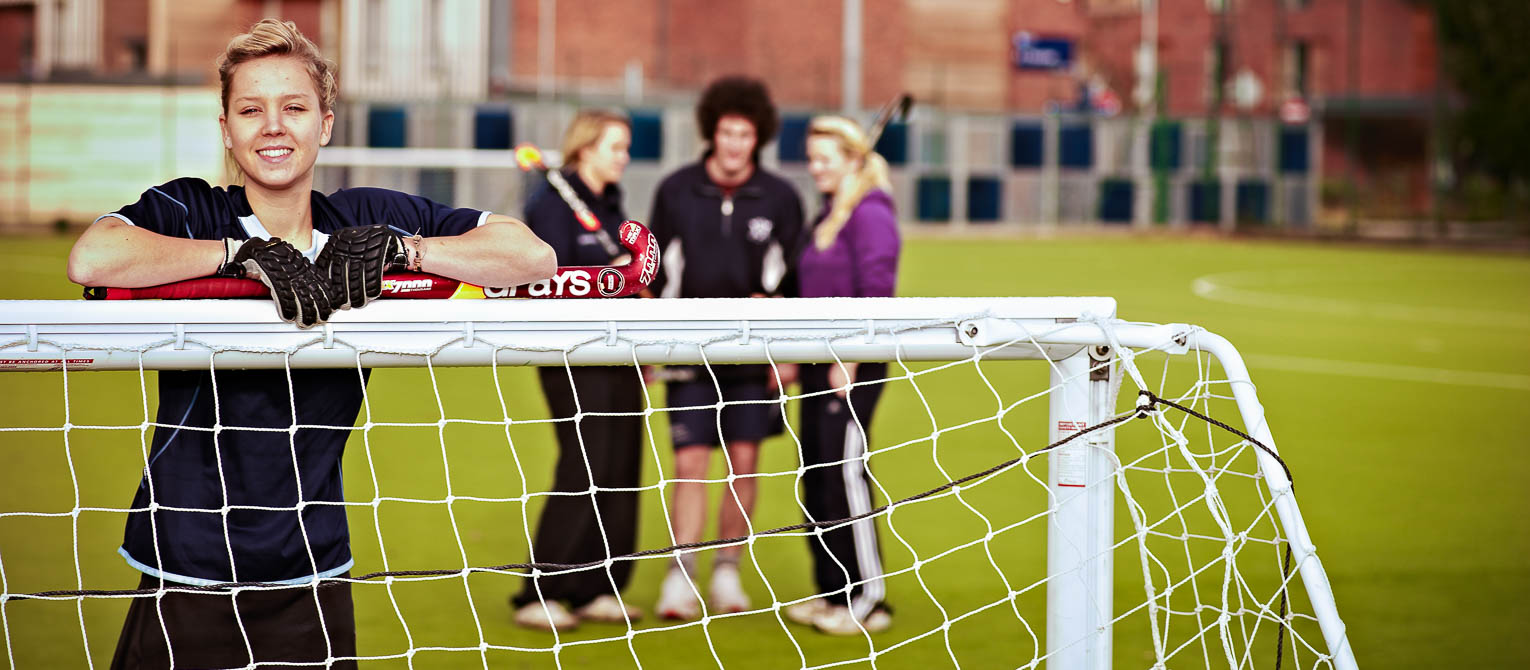Transform your love for sport into a fulfilling career with this practical, applied and progressive course designed to prepare you for the future. You'll develop knowledge and skills for a wide range of jobs, whether that's enhancing the performance of elite athletes, or promoting healthy living in the wider community. You could work in an NHS or private hospital, on a sports field, at a research facility, at a client's business or in a fitness centre.
of students in work or further study 15 months after graduating
for student satisfaction in the UK
University of the Year finalist
Recognised for our graduate success, we’re shortlisted for University of the Year in the Times Higher Education Awards 2025.
Overview
Our newly revised course is designed with a strong practical focus to fully prepare you for graduate employment. From day one, you will develop essential practical skills and professional competencies to measure health and well-being and sport performance.
In year one you will gain a comprehensive understanding of all aspects of sport and exercise science, including physiology, nutrition, human movement, exercise training, performance assessment and psychology. You’ll begin to understand how the various scientific disciplines influencing sporting performance interact, and how performance can be measured and improved through appropriate interventions. You will also develop academic skills for success and practical skills for the workplace.
Years two and three will delve deeper into scientific theories and concepts that impact health and wellbeing, and sports performance. You will develop the ability to debunk myths in nutrition and training science, becoming an evidence-based practitioner.
You’ll learn in our excellent facilities, including the University of Worcester Arena, two Astro Turf pitches and brand new sport science laboratories in our recently opened teaching building close to the Arena.
Hands-on sessions and industry placements are built into the course, and our labs are used day in day out for teaching – not reserved solely for academic research. By the time you graduate, you’ll have plenty of experience in professional sports settings and with using industry-standard equipment.
You’ll join a community of sports students from a range of courses, building bonds that will endure during your time at Worcester and beyond. We organise regular social events throughout the year, including our ‘alternative Olympics’ and Christmas quiz.
Placements
In your final year, you’ll spend at least 50 hours on placement as part of our work-based-learning module, giving you the experience needed for your future career.
Recent students have gone on placement at West Bromwich Albion, Worcester City Women’s Football Club and Sport England. So, you might find yourself supporting first-team training sessions as part of a strength & conditioning team or developing new projects and funding programmes for a governing body.
Our course is endorsed by the British Association of Sport and Exercise Sciences and has a strong practical focus that will help you develop your workplace skills, enhance your CV and explore your future career options including post-graduate study.
Placement year option
In addition to the professional placement in your final year, there is also the option to complete a placement year between the second and third years of study. During this year you can choose to study or work abroad or complete a work placement year in the UK. Many professional sports clubs offer year-long internships in sport science or strength & conditioning which are only available to students who have a placement year as part of their undergraduate studies, so by taking this option you can apply for these exciting opportunities.
Sport at Worcester | student led tour
Course content
After a core first year, in year 2 and year 3 you will study a mix of mandatory and optional modules. This flexible course lets you explore different subjects and career paths in sports and exercise science before choosing to specialise in your final year.
You can choose from a range of exciting modules to enhance your knowledge and skills in data science techniques, technological solutions in sport and wellbeing, advancing women’s health and performance and global issues in sport and exercise science.
We regularly review our courses to reflect the latest research and developments in the subject area, as well as feedback from students, employers and the wider sector. As a result, modules may change to ensure the course remains current and relevant.
Optional modules will run if enough students choose to study them. It is not guaranteed that all modules will be offered every year.
Careers
Most people start this course knowing they love sport but not knowing exactly what career they want to go into. Which is why we give you the chance to explore lots of different subjects from strength and conditioning, biomechanics, and sports physiology, through to nutrition, clinical physiology, and psychology.
While you’re exploring these subjects and the jobs they lead to, we also work with you on the professional skills needed for a successful career. Throughout the course you will have opportunity to consider real jobs, practice job application and CV writing, interviewing and develop your professional skills for the workplace. This culminates with a work placement in your final year.
Performance sport careers
Our graduates go on to work with a professional sports team or individual athletes as:
- Strength and conditioning coaches
- Sports data scientists
- High-performance managers
And with postgraduate training, as:
- Nutritionists
- Biomechanists
- Sport psychologists
Health, exercise and wellbeing careers
Throughout the course many decide they want to use their passion for sport and exercise to improve the health and wellbeing of others. With further education they enter careers within the NHS or with private health providers like Nuffield Health, including as:
- Cardiac rehabilitation specialists
- Fitness and wellbeing advisors
- Sports therapists
- Dietitians
Other options
- Sport and health promotion within national governing bodies, associations and sports partnerships.
- Train to teach with a one-year Primary or Secondary PGCE at Worcester.
- Promoting and delivering physical activity within disability sports.
- Postgraduate study, for example with a MSc in Applied Sport Physiology or Sport and Exercise Medicine or Applied Performance Analysis.
Course highlights
Teaching and assessment
You’ll be taught by a team of expert lecturers many of whom continue to work as applied practitioners or are active researchers in their field. Most of our staff hold doctoral qualifications and are accredited with professional organisations (CASES, UKSA, HEA) to ensure your experience is of the highest quality. You will learn through active engagement in a combination of practical lab work, seminars, lectures and one-to-one tutoring.
Assessments are carefully designed for you to demonstrate the application of knowledge in scientific reports, client feedback reports, oral and poster presentations, practical assessments, as well as essays and literature reviews. The first year includes some in-class tests to ensure appropriate foundation knowledge.
Teaching and assessment contents
We aim to provide a learning context that will explore the full potential of all participants and encourage excellence in both theory and practice. You will use industry-standard software and have access to laboratory and computer facilities throughout the course You will be taught through a diverse range of teaching methods.
- Lectures: gain fundamental knowledge and key concepts essential for your degree.
- Seminars: engage in discussions to deepen your understanding of lecture topics
- Practical work: develop subject-specific practical skills through hands-on laboratory sessions
- Workshops: participate in interactive sessions to enhance your ability to apply knowledge to case studies and scenarios.
- Independent and Group Study: collaborate on projects and tasks to apply your knowledge in real-world scenarios
- Tutorials: individualised support to ensure you reach your full potential
You will also gain a thorough grounding in the investigative and research techniques required to work effectively in this field.
Students may have opportunities to take part in research projects and applied practice alongside staff.
In addition, meetings with personal academic tutors are scheduled on at least 4 occasions in the first year and three occasions in each of the other years of a course.
Entry requirements
UCAS tariff points required: 112
| Qualification | Grade |
|---|---|
| A-level | BBC |
| BTEC National Extended Diploma | DMM |
| T-level | Merit |
We do accept Access to HE Diplomas and other qualifications which may not exactly match the combinations above. Work out your estimated points with the UCAS tariff calculator.
Any questions?
If you have any questions about entry requirements, please call our Admissions Office on 01905 855111 or email admissions@worc.ac.uk.
Fees
Fees contents
UK and EU students
In 2026/27 the standard fee for full-time home and EU undergraduate students on BA/BSc/LLB degrees and FdA/FdSc degrees is £9,790 per year.
Tuition fees are reviewed annually and may increase each year for both new and continuing students.
For more details on course fees, please visit our course fees page.
International students
In 2026/27 the standard tuition fee for full-time international students enrolling on BA/BSc/LLB degrees and FdA/FdSc degrees is £17,200 per year.
Tuition fees are reviewed annually and may increase each year for both new and continuing students.
For more details on course fees, please visit our course fees page.
How to apply
How to apply contents
Applying through UCAS
UCAS is the central organisation through which applications are processed for full-time undergraduate courses in the UK.
Read our how to apply pages for more information on the application process, or if you’d like to apply for part-time study.
- Sport and Exercise Science BSc (Hons) C600
Contact
If you have any questions, please get in touch. We're here to help you every step of the way.

Admissions Office
admissions@worc.ac.uk01905 855111More to explore
Open Days
Visiting us is the best way to get a feel for student life at the University of Worcester.

The City of Worcester
Worcester is a welcoming university city with great transport links and plenty of student parking.

Accommodation
Benefit from our accommodation guarantee. We have rooms on campus to suit every budget including en-suite options.

